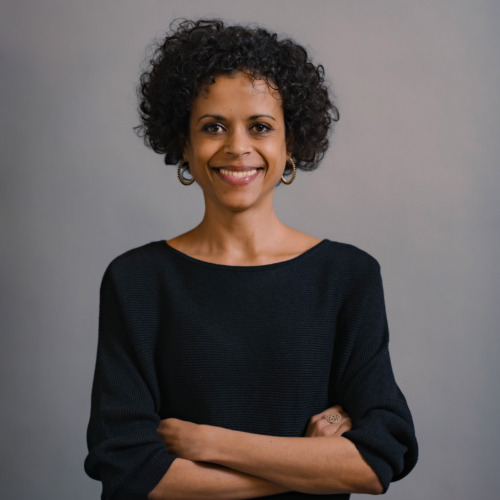The historic injustices of colonialism, enslavement, the slave trade and their ongoing legacies remain largely unaccounted for among the states and other actors responsible. Why aren’t we seeing a meaningful reckoning with this past when affected communities around the world have been calling for reparations for decades and centuries? We can’t afford any further delays to reparatory processes.
Unless those who engaged in, and continue to benefit from, these historic harms (incl. governments, monarchies, churches, private actors, and public institutions such as museums) accept responsibility and start to make amends, these legacies will continue to do harm and cause losses for future generations.
While the right to reparations is enshrined in international human rights law, governments faced with calls for reparations have challenged its applicability to colonial abuses and the existence of a duty under international to provide reparation in the context of these particular historic legacies. They argue that the crimes were committed too long ago or that applicable international law didn’t exist at the time when the crimes were committed, and therefore communities do not have a right to reparations. Such arguments disregard the fact that rights violations ensuing from colonialism, enslavement and the transatlantic slave trade have not stopped, and descendants of direct victims are affected too. Colonialism, enslavement and the slave trade are not only harms of the past. Their legacies persist in present day structures of racial discrimination, subordination and inequality. Moreover, what discussion there is tends to focus on demands for reparations by the governments of former colonies rather than the obligations to affected people and communities.
Reparations are often misconstrued as demands for money. Although financial compensation may be a component of reparatory justice, reparations are so much more than an amount of money owed to communities and individuals. They are meant to acknowledge the responsibility of states for the consequences of systems based on the dehumanization and exploitation of human beings, as well as the destruction of the political, cultural, spiritual and material characteristics of societies. Reparations can take many forms and are to be determined by affected communities, but they can include restitution (including the right to return of displaced peoples), return of human remains and cultural artifacts, repatriation, apologies, memorialization and guarantees of non-repetition. Affected communities must be genuinely and meaningfully centered, represented and consulted in reparatory processes. Purely state-to-state engagement around colonial legacies as we have seen in recent cases rarely, if ever, delivers just outcomes for communities.
To stop the cycle of these legacies, responsible actors need to take reparatory actions now. They must establish victim-centered, independent, transparent and resourced reparatory processes that are easily accessible for affected communities, that genuinely allow for communities’ representation and participation in these processes and that will result in a true reckoning with these legacies as well as justice, reparation and healing for affected communities.
Genuine reparatory processes would be a step towards an equitable world that centers racial justice, including the dismantling of structures of oppression rooted in colonialism. These legacies have created an imbalance in global wealth distribution, inequity, inequality and entrenched systemic racism that continues today.
Marking 140 years since the Berlin Africa Conference in 1884/1885—seeing the expansion of European colonization across the African continent—Human Rights Watch, Amnesty International and African Futures Lab - are organizing this workshop, meant as a learning space for practitioners, communities, activists and others in an effort to advance reparations.
Many affected communities around the world have been struggling for reparations to address multigenerational trauma, emotional suffering, inequality and wealth losses ensuing from colonization, enslavement and the transatlantic slave trade. They face resistance to their calls and have to navigate and engage with systems embedded in continuing coloniality and power imbalances. The racialized global order rooted in colonization was designed to benefit the few and value some lives over others. However, those historically oppressed and systematically excluded don’t want to wait for racial and decolonial justice any longer. International law demands substantive equality and the value of all humans.
At this workshop, we will first have a plenary where we will hear from experts, including from communities struggling for reparations, about different processes to discuss challenges and the power of strategic litigation. We will hear, among others, about the Namibia-Germany negotiations addressing Germany’s colonial crimes committed in Southwest Africa, the Great Lakes-Belgium process for reparations for forced abduction of Metis children, the UK-Mauritius Chagos negotiations for reparations, and a case of reparations towards France.
After the plenary, we will divide participants into groups to delve deeper into lessons learned, discuss the international legal and policy framework of reparations, what a best practice reparatory process could look like, while also exploring new joint strategies to achieve a community-centered recognition of the right to reparations at the international level. We will discuss how we can empower communities in achieving decolonial justice.
It is more important than ever that historic legacies are addressed to ensure that marginalized communities around the world are protected. There are clear International human rights obligations that prohibit all forms of discrimination, that ensure protection of Indigenous rights and that safeguard the right to redress where human rights abuses occur. It is time to see these human rights realized.
Language: English
With: Almaz Teffera, Melissa Hendrickse, Rym Khadhraoui
For: Afro-Community, Activists, BIPoC*, Students, Communities struggling for reparations, Academics, Lawyers and Civil Society Groups
An event by Human Rights Watch und Amnesty International
